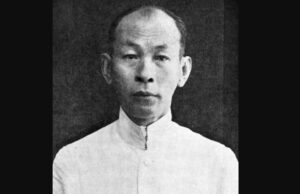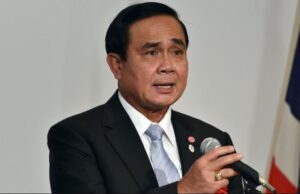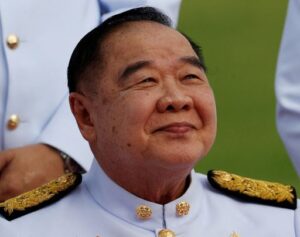Thailand has had a varied and dynamic political history, with several notable figures serving as its head of state. The country, known as the Kingdom of Thailand, has a unique political structure compared to many other nations.
Historically, Thailand was a monarchy with a series of kings. However, in 1932, a constitutional monarchy was established, transitioning the country to a system where the head of state is a monarch, and the head of government is a prime minister.
READ ALSO: Presidents That Have Ruled Turkey Till Date
Here’s a detailed look at Thailand’s presidents and key figures in its political history:
| Position | Years in Office | Origin | Previous Positions | Notable Achievements | Downsides |
|---|---|---|---|---|---|
| First Prime Minister | 1932–1933 | Siam (now Thailand) | Military Officer, Revolutionary Leader | Led the transition from absolute monarchy to constitutional monarchy | Short tenure, faced resistance from royalists |
| Current Prime Minister | 2023–Present | Thailand | Former Army Commander, Politician | Promoting economic reforms, focusing on national stability | Political controversies, challenges in achieving long-term reforms |
| Current Deputy Prime Minister | 2023–Present | Thailand | Former Minister of Education, Politician | Focused on educational reform, supporting economic growth | Limited influence compared to the Prime Minister |
READ ALSO: Presidents That Have Ruled Vietnam Till Date
First Prime Minister of Thailand:

Origin: Phraya Manopakorn Nititada, born in 1887 in Bangkok, Thailand, was a key figure during the early years of Thailand’s transition to a constitutional monarchy.
Previous Positions: Before becoming the first Prime Minister, he served as a military officer and was a significant leader in the 1932 Siamese Revolution that ended the absolute monarchy.
Notable Achievements: As the first Prime Minister, Manopakorn Nititada played a crucial role in implementing the new constitutional framework and transitioning the country from an absolute monarchy to a constitutional monarchy. This period marked a significant shift in Thai politics, introducing more democratic elements into governance.
Downsides: His tenure was short and turbulent, lasting only a year. He faced considerable resistance from royalists and conservative factions who were unhappy with the changes. This resistance, combined with political instability, hindered his ability to implement long-term reforms.
READ ALSO: Presidents That Have Ruled Philippines Till Date
Current Prime Minister of Thailand:

Origin: General Prayuth Chan-o-cha was born in 1954 in Nakhon Ratchasima, Thailand.
Previous Positions: Prior to becoming Prime Minister, Prayuth was a prominent military officer, serving as the Commander-in-Chief of the Royal Thai Army. He led the coup d’état in 2014, which resulted in the suspension of democratic processes and the establishment of a military government.
Notable Achievements: Prayuth’s government has focused on economic reforms aimed at boosting Thailand’s economic growth and development. His administration has undertaken various infrastructure projects, including transportation improvements and smart city initiatives. He has also worked on strengthening Thailand’s international relations.
Downsides: His tenure has been marked by controversies, including allegations of authoritarianism and human rights violations. The military coup he led in 2014 resulted in significant criticism both domestically and internationally. His government has faced challenges in achieving political stability and addressing long-standing issues of corruption and inequality.
READ ALSO: Presidents That Have Ruled Cape Verde Till Date
Current Deputy Prime Minister of Thailand:

Origin: General Prawit Wongsuwan was born in 1946 in Nakhon Ratchasima, Thailand.
Previous Positions: Before becoming Deputy Prime Minister, Prawit served in various military and governmental roles. He was the Minister of Defence and held significant positions within the military establishment.
Notable Achievements: Prawit has been instrumental in supporting national security and defense policies. His role in the government has included overseeing military and defense-related reforms and supporting economic development through his military and political influence.
Downsides: Prawit has faced criticism related to allegations of corruption and misuse of power. His involvement in the military coup and subsequent political controversies has also affected his public image. Additionally, his influence in the political landscape has been seen as contributing to the centralization of power.
READ ALSO: Presidents That Have Ruled Comoros Till Date
Summary
Thailand’s political history has been shaped by a transition from an absolute monarchy to a constitutional monarchy, with a unique political structure where the monarch is the head of state, and the prime minister is the head of government.
The roles of Prime Minister and Deputy Prime Minister are central to the country’s governance, with each leader contributing to the nation’s development in different ways.
The first Prime Minister, Phraya Manopakorn Nititada, played a key role in Thailand’s early democratic transition, though his tenure was short and faced significant challenges.
The current Prime Minister, General Prayuth Chan-o-cha, has focused on economic reforms and infrastructure development but has faced criticism for his authoritarian tendencies and the military coup that brought him to power.
The current Deputy Prime Minister, General Prawit Wongsuwan, has been influential in defense and security but has also faced allegations of corruption.
These leaders reflect the complex and evolving nature of Thailand’s political landscape, with each contributing to the country’s development while facing their own unique set of challenges and criticisms.
